Reverse Osmosis & Water Treatment in Columbia
CHUNKE projects of Reverse Osmosis Water Treatment in Columbia including different types of water treatment systems.
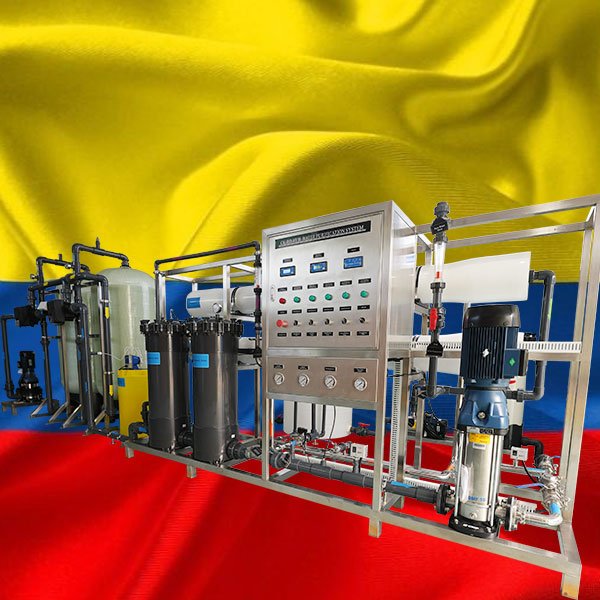
Colombia, officially known as the Republic of Colombia, is primarily situated in South America. Additionally, it has insular regions in North America. To the north, it’s bordered by the Caribbean Sea, while Venezuela lies to the east and northeast. Furthermore, Brazil is situated to the southeast, with Ecuador and Peru to the south and southwest. On its west, it meets the Pacific Ocean, while Panama is located to the northwest. Divided into 32 departments, Colombia’s political structure is well-organized In addition, the Capital District of Bogotá, the country’s largest city, serves as the main financial and cultural hub.
Other major urbes include Medellín, Cali, Barranquilla, Cartagena, Santa Marta, Cúcuta, Ibagué, Villavicencio and Bucaramanga. It covers an area of 1,141,748 square kilometers (440,831 sq mi), and has a population of around 52 million. Its rich cultural heritage—including language, religion, cuisine, and art—reflects its history as a colony. It is fusing cultural elements brought by mass immigration from Europe and the Middle East, with those brought by the African diaspora, as well as with those of the various Indigenous civilizations that predate colonization. Spanish is the official language, although English and 64 other languages are recognized regionally.
Total Renewable Water Resources in Columbia
In 2020, renewable water resources per capita for Colombia was 46,381 cubic meters per year. Between 1971 and 2020, renewable water resources per capita of Colombia was declining at a moderating rate to shrink from 107,253.3 cubic meters per year in 1971 to 46,381 cubic meters per year in 2020.
- Renewable surface water : 2,360 billion cubic meters per year
- Renewable groundwater : 510 billion cubic meters per year
- Renewable water resources : 2,360 billion cubic meters per year
- Dependency ratio :9.1 %
Meanwhile, CHUNKE provides wide range of filtration and economical solutions based on the Columbia’s water resources. Our pumps, dosing pumps, reverse osmosis membranes, electronic components, and drives are all world-renowned suppliers. So, our water treatment in Columbia becomes more popular accordingly.
- Surface water is water from river, lake which can be treated using different methods, such as Ultrafiltration Systems, Brackish Water RO accordingly.
- Desalination can be used for water from ocean, or sea source, which can be treated using Sea Water Reverse Osmosis Systems; Desalination Systems
- Ground Water or brackish water is from water located in the pore space of soil and rock “Borehole well”, which can be treated using Reverse Osmosis Systems, Borehole Water Filtration Systems, Well Water Filtration Systems, Chemical Dosing, UV Water Sterilizer accordingly.
- Government water supply, which could have high level of hardness or high level of chlorine, can be treated with Water Softener System, Media Water Filters.
CHUNKE Projects of Water Treatment in Columbia
Meanwhile, CHUNKE designs and produces water treatment systems that meet the World Health Organization requirements. So, our water treatment in Columbia is suitable for drinking.
CHUNKE has over 15 years of experience as a global provider of B2B water treatment solutions for a variety of applications and industries, we offer a large selection of all types of reverse osmosis, ultrafiltration, electrodeionization and water treatment systems to meet your industrial needs accordingly. So, CHUNKE’s extensive global experience in engineering and manufacturing allows us to pre-engineer and customize water treatment and reverse osmosis systems to meet a wide range of customer requirements and specifications.
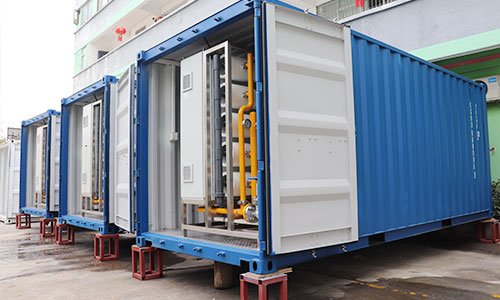
10T Container Seawater Desalination Equipment
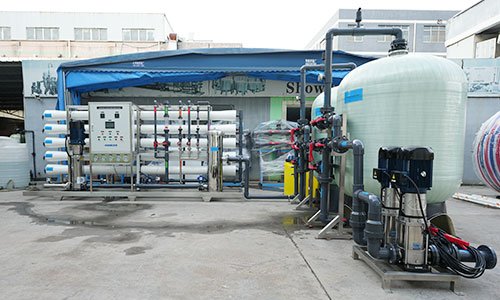
20T Reverse Osmosis System for Drinking
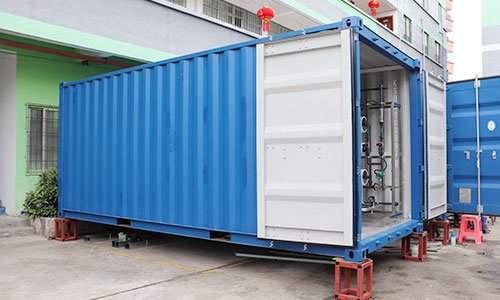
3T Container Brackish Water Equipment
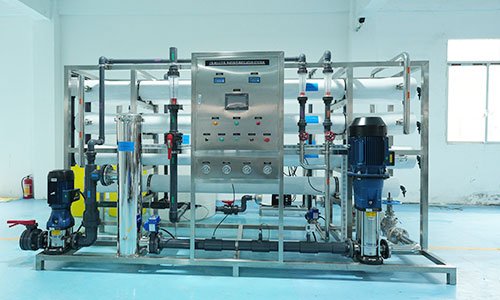
21T Reverse Osmosis System for Laundry
Water Resources in Columbia
With abundant water resources like surface water and groundwater, Colombia is indeed fortunate . This wealth includes water from rivers, lakes, and freshwater wetlands . Various treatment methods, such as Ultrafiltration Systems, are employed to purify it . Brackish Water Reverse Osmosis (RO) is another technique used in this process .Moreover, Colombia faces water scarcity, which has made desalination a necessary process . This procedure converts seawater into freshwater, meeting water demands . Seawater Reverse Osmosis Systems play a vital role in this transformation . Lastly, Desalination Systems are crucial for extracting freshwater from the ocean . In conclusion, these technologies ensure Colombia’s water needs are met effectively and efficiently.
Groundwater is a key water
Groundwater is a key water resource in Colombia, often obtained from wells. However, it typically contains high levels of brackishness, which necessitates treatment. This treatment involves the use of Reverse Osmosis Systems, Chemical Dosing, and UV Water Sterilizers. These systems ensure the water’s suitability for consumption, making it safe for the population. Additionally, the government’s water supply in Colombia often contains high levels of hardness or chlorine. This makes it unsuitable for direct consumption, necessitating further purification. Water Softener Systems and Media Water Filters are typically used for this purpose. These systems help reduce the hardness and chlorine levels, making the water safe for use. Overall, treating water resources in Colombia is a complex process involving various technologies. These technologies ensure that all water sources, whether from wells or government supplies, are safe for consumption. This is essential for maintaining the health and well-being of Colombia’s population.
It is worth noting that access to improved sources of drinking water in Columbia is relatively high, with 92% of the population having access to clean water, accordingly. However, there is still work to be done to ensure that the remaining 8% of the population also has access to safe drinking water. Similarly, improved sanitation facilities are available to 74% of the population, indicating the need for further improvements in this area.
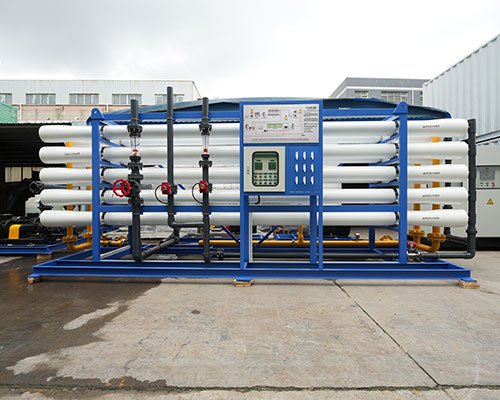
The Importance of Water Treatment
Water treatment plays a crucial role in ensuring that water is clean, safe, and free from contaminants. In a country like Columbia, where water scarcity and contamination are prevalent, implementing effective water treatment solutions is essential for public health and environmental sustainability.
Reverse Osmosis: A Key Water Treatment Technology
One of the most widely used water treatment technologies in Columbia is Reverse Osmosis (RO). So, reverse osmosis is a process that uses a semi-permeable membrane to remove impurities and contaminants from water. It works by applying pressure to the water, forcing it through the membrane and leaving behind dissolved solids, bacteria, and other harmful substances.
RO systems are highly efficient in producing purified water, making them ideal for various applications, including drinking water, irrigation, and industrial processes. So, the technology has significantly improved over the years, allowing for higher capacity and better water quality.
Benefits of Reverse Osmosis Systems
Reverse osmosis systems offer several benefits, making them a popular choice in Columbia for water treatment, accordingly:
- Improved Water Taste: One of the primary advantages of RO systems is that they remove contaminants that can affect the taste of water. Chlorine, metallic flavors, and saltiness are often eliminated, resulting in better-tasting water.
- Pollutant Removal: RO systems are effective in removing a wide range of pollutants, including salts, pesticides, bacteria, and other impurities. This ensures that the water is safe for consumption and other uses.
- Eco-Friendly and Cost-Efficient: By using a reverse osmosis system, the need for purchasing disposable water bottles is reduced, leading to cost savings and a reduced environmental impact.
- Protection of Plumbing Appliances: Unfiltered water can contain minerals and salts that can damage pipes and other plumbing fixtures. With a reverse osmosis system, these impurities are removed, preserving the longevity of the plumbing system
Choosing the Right Water Filtration System
Selecting a water filtration system in Columbia requires an understanding of the specific water quality issues you’re facing . For instance, if your water is hard, a water softening system may be appropriate . Alternatively, if you’re dealing with iron contamination, a specific filter designed for this issue would be suitable. For city water often treated with chlorine, a filtration system that can tackle this chemical is essential . We are using SEKO Pump for chemical disng. On the other hand, well water may contain sulfur, requiring a different type of filter . Thus, understanding these factors can guide you to the right solution . Customer satisfaction also plays a crucial role in your selection . For instance, companies like CHUNKE have received positive reviews for their services . Therefore, considering these testimonials can assist you in making an informed choice .
Reverse Osmosis Systems for Drinking Water
If you prioritize drinking water quality, consider a reverse osmosis system. Designed to eliminate contaminants, these systems target chemicals, microorganisms, and heavy metals. Reverse osmosis systems are multi-stage, incorporating pre-filters and post-filters. This design guarantees comprehensive purification. The system’s structure is built for efficiency, ensuring clean, safe water. Therefore, if quality is your main concern, a reverse osmosis system might be the perfect fit.
Whole House Filtration Systems for Comprehensive Water Treatment
For a holistic water treatment, consider a whole house filtration system. Installed at the point of entry, this system treats all incoming water. Consequently, it caters to showers, faucets, and appliances alike. Significantly, these systems are highly efficient. They effectively remove sediments and chlorine. Ultimately, they ensure clean, safe water throughout your home. Moreover, they can deal with other impurities too. Thus, every water source in your home becomes reliable. In conclusion, for comprehensive water treatment, there’s no beating a whole house filtration system.
Ensuring Environmental Sustainability
While water treatment systems like reverse osmosis and desalination are essential for meeting the water demands in Columbia, it is crucial to ensure their environmental sustainability. So, the discharge of concentrated brines from desalination plants can have a severe impact on marine life and the environment. Dilution of the brine is an important step in reducing its concentration and mitigating its environmental effects. Meanwhile, efforts should be made to monitor and treat the brines before and after their discharge to minimize harm to ecosystems.
Furthermore, implementing renewable energy sources, such as solar and wind power, in desalination plants can help reduce energy consumption and make the process more sustainable. By harnessing the power of renewable energy, the cost of operating desalination plants can be significantly reduced, making clean water more accessible and affordable for all.
Chunke is Trusted Water Treatment Supplier from China
Reverse osmosis water treatment plays a crucial role in addressing the water challenges faced in Columbia. By utilizing advanced RO systems and complementary water treatment technologies, clean and safe drinking water can be made available to both military personnel and the local population. Wastewater treatment solutions further contribute to environmental sustainability and public health. Applying the lessons learned from previous water supply operations, Columbia can enhance its water treatment efforts and ensure a sustainable supply of clean and safe drinking water for its people. With the implementation of innovative and efficient water treatment solutions, reverse osmosis continues to be a valuable tool in the pursuit of clean water in Columbia.
Chunke Water Treatment‘s expertise in producing high-quality reverse osmosis systems has contributed to improving water treatment capabilities in Columbia. So, their reliable and efficient RO plants have been implemented in various projects across the country, ensuring access to clean and safe drinking water.
